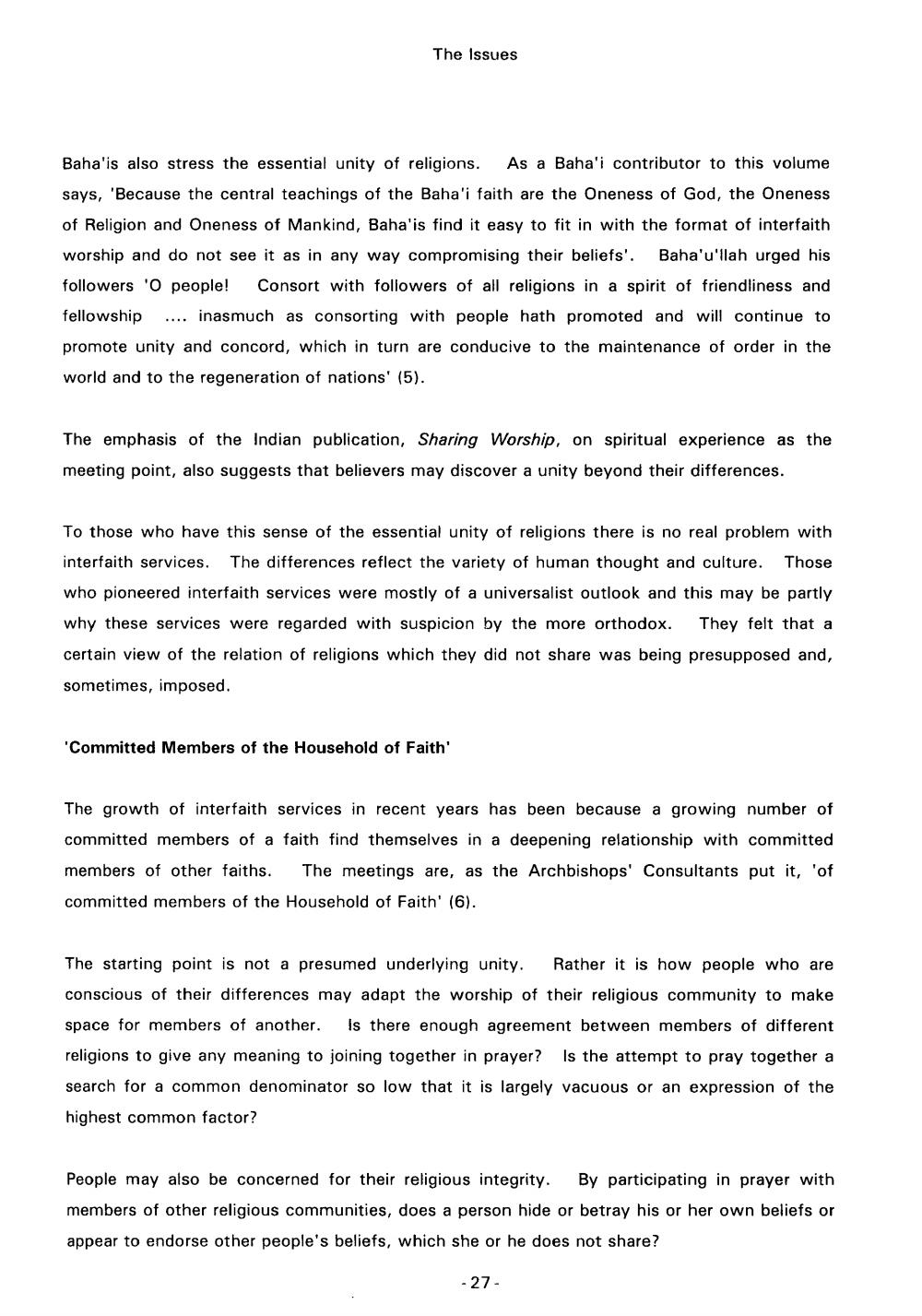________________
The Issues
Baha'is also stress the essential unity of religions. As a Baha'i contributor to this volume says, 'Because the central teachings of the Baha'i faith are the Oneness of God, the Oneness of Religion and Oneness of Mankind, Baha'is find it easy to fit in with the format of interfaith worship and do not see it as in any way compromising their beliefs'. Baha'u'llah urged his followers 'O people! Consort with followers of all religions in a spirit of friendliness and fellowship .... inasmuch as consorting with people hath promoted and will continue to promote unity and concord, which in turn are conducive to the maintenance of order in the world and to the regeneration of nations' (5).
The emphasis of the Indian publication, Sharing Worship, on spiritual experience as the meeting point, also suggests that believers may discover a unity beyond their differences.
To those who have this sense of the essential unity of religions there is no real problem with interfaith services. The differences reflect the variety of human thought and culture. Those who pioneered interfaith services were mostly of a universalist outlook and this may be partly why these services were regarded with suspicion by the more orthodox. They felt that a certain view of the relation of religions which they did not share was being presupposed and, sometimes, imposed.
'Committed Members of the Household of Faith'
The growth of interfaith services in recent years has been because a growing number of committed members of a faith find themselves in a deepening relationship with committed members of other faiths. The meetings are, as the Archbishops' Consultants put it, 'of committed members of the Household of Faith' (6).
The starting point is not a presumed underlying unity. Rather it is how people who are conscious of their differences may adapt the worship of their religious community to make space for members of another. Is there enough agreement between members of different religions to give any meaning to joining together in prayer? Is the attempt to pray together a search for a common denominator so low that it is largely vacuous or an expression of the highest common factor?
People may also be concerned for their religious integrity. By participating in prayer with members of other religious communities, does a person hide or betray his or her own beliefs or appear to endorse other people's beliefs, which she or he does not share?
- 27




